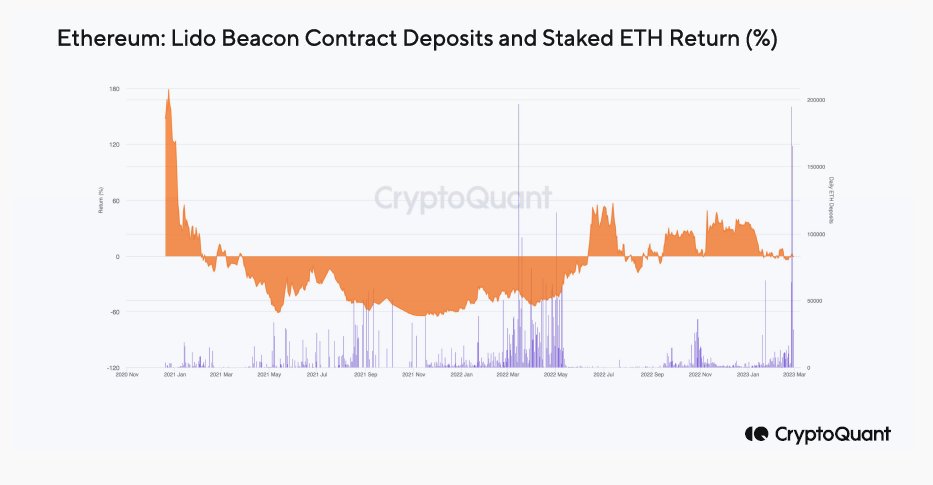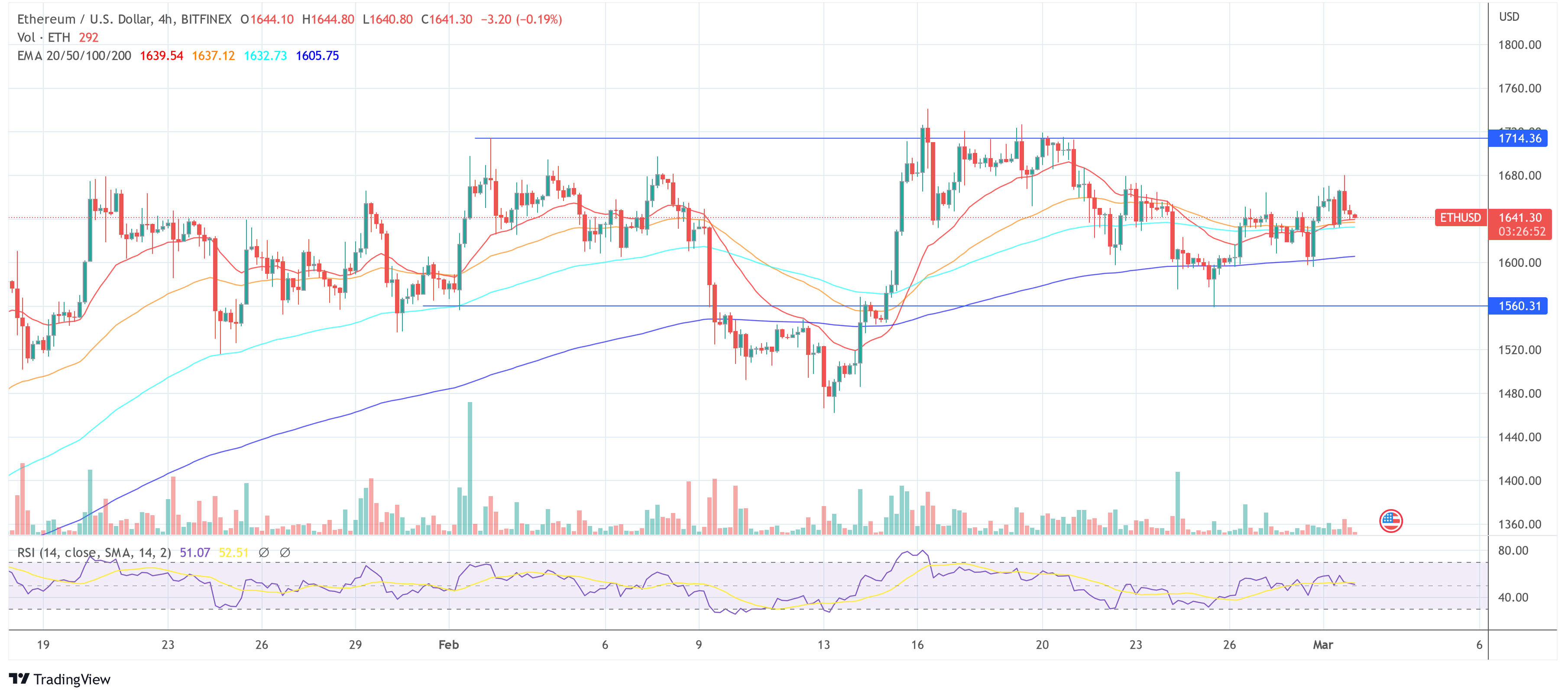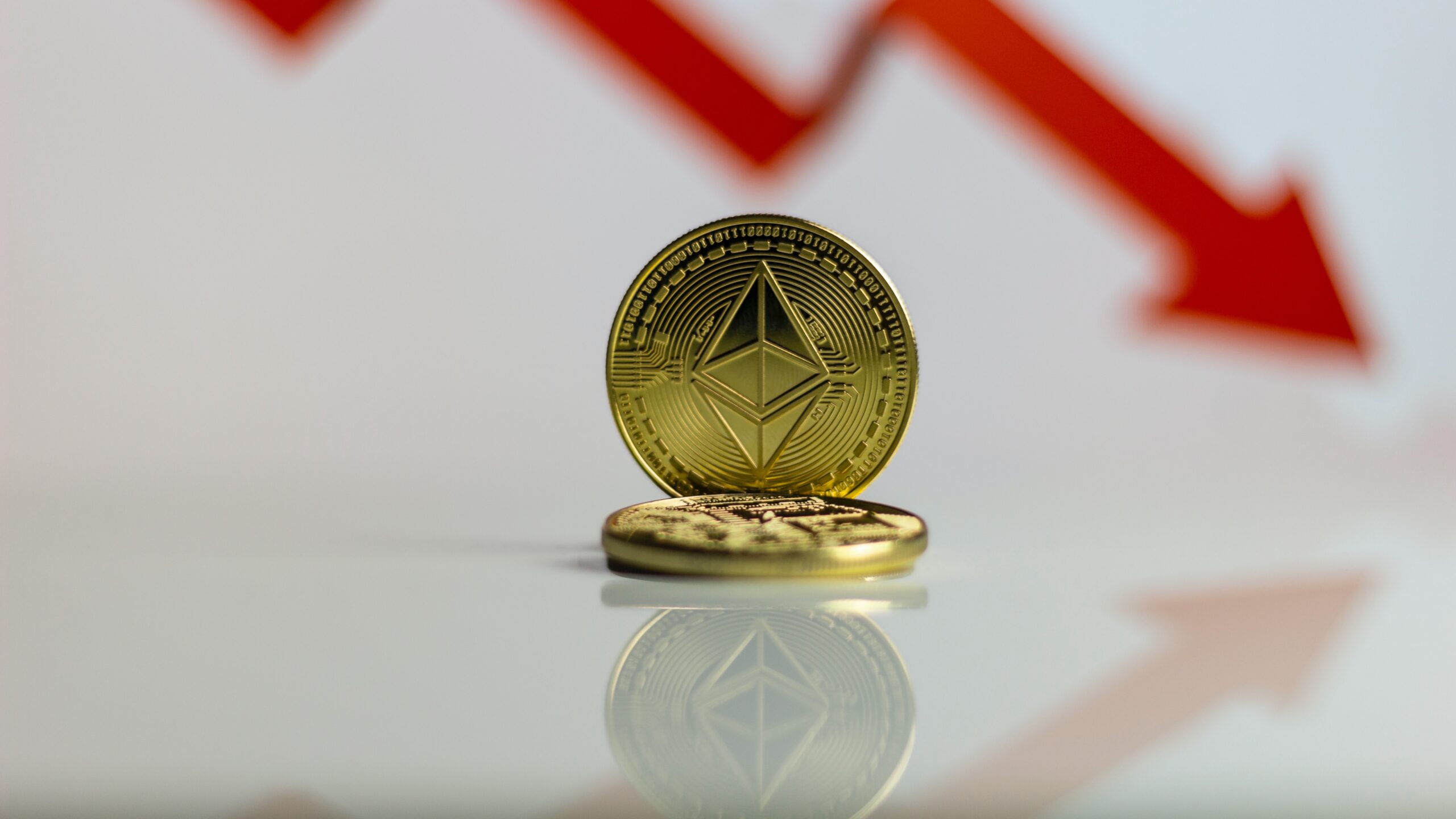The Ethereum Shanghai hard fork is just around the corner and is expected to be activated on the mainnet sometime in March 2023. While the network will hereby take another significant milestone, investors are looking anxiously at the upgrade as it could bring massive selling pressure.
But on-chain data platform CryptoQuant published an in-depth analysis today that suggests there are two good reasons why selling pressure on Ether (ETH) will remain low even after the Shanghai upgrade.
Ethereum Shanghai Hard Fork Does Not Threaten Price
Currently, there are 17.065 million ETH staked in the deposit contract, which is 14.12% of the total supply. The fear among investors is that there could be a massive dump in the Ethereum price when a majority of ETH becomes available for the first time in over two years.
However, this concern is unfounded for two reasons: First, there is an exit queue, as Ethereum’s exit period is dynamic and not static like other proof of stake networks, meaning that not all ETH can be dumped all at once but over a long period of time, as NewsBTC reported.
On the other hand, a majority of ETH stakers would have to exit their positions, an assumption that is unlikely, according to CryptoQuant. In its report, the analysis firm concludes that selling pressure for ETH will remain low after the Shanghai upgrade.
This is the conclusion of CryptoQuant after analyzing the profits and losses of ETH stakers. The company has found two arguments for this: 60% of the staked ETH are in loss, and the depositors of the largest staking pool are also in loss:
1- Currently, 60% of staked ETH is at a loss, representing 10.3 million ETH.
2- The largest staking pool (Lido) holds almost 30% of all staked ETH at an average loss of nearly $1,000. The staked ETH has an average loss of 24%.

The analytics firm backs its theory by saying that selling pressure usually occurs when participants make extreme profits, which is not currently the case with the staked ETH. “Additionally, the most profitable staked ETH was staked less than a year ago and has not seen significant profit-taking events in the past,” CryptoQuant says.
Dynamic Exit Queue Prevents Mass Exodus
Rich Falk-Wallace, CEO of research firm Arcana and former portfolio manager at Citadel, agrees with CryptoQuant’s analysis but took the other analytical approach.
In a worst-case scenario presented Tuesday, the analyst projects that it would take more than two years for the number of validators to drop from the current 536,000 to 100,000 if the maximum validators churn occurs.
If this scenario were to happen, Falk-Wallace estimates that selling pressure could be about 6% of daily volume (0.2% of total ETH) in the first three days, 1% for the next six months, and 0.3% over an 18-month period.
Is the Shanghai Upgrade to Ethereum a major price risk?
One table lays out the worst case scenario. In the worst case scenario:
6% of daily volume (0.2% of total ETH) for the first 3 days.
1% for the next 6 months.
0.3% for the next 18 months. pic.twitter.com/8hIVzMLSSu
— Rich Falk-Wallace (@rfw_arcana) February 28, 2023
At press time, the Ethereum (ETH) price was trading at $1,641. On the upside, $1,700 remains the main resistance, while $1,560 is the line that the bulls need to defend.









